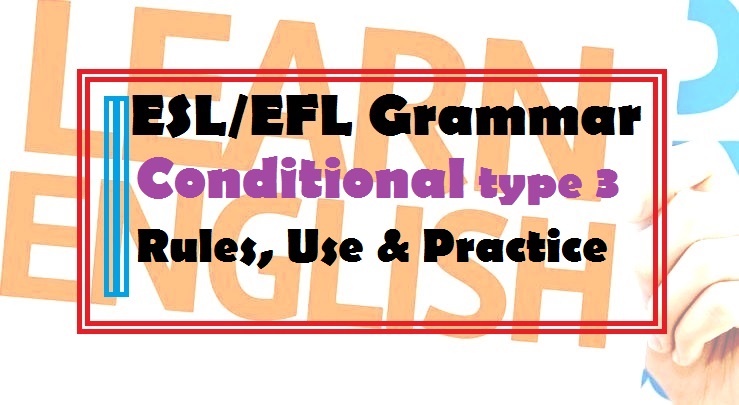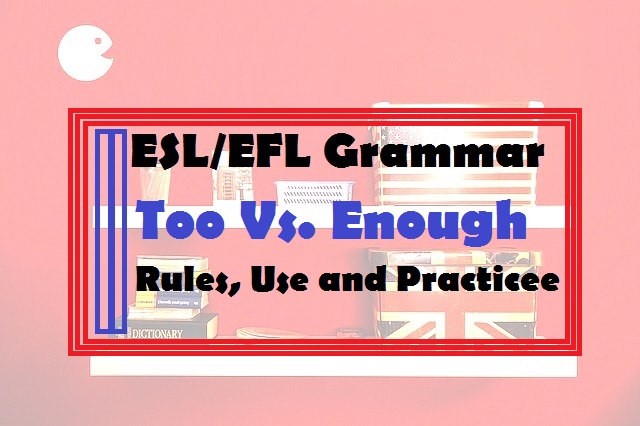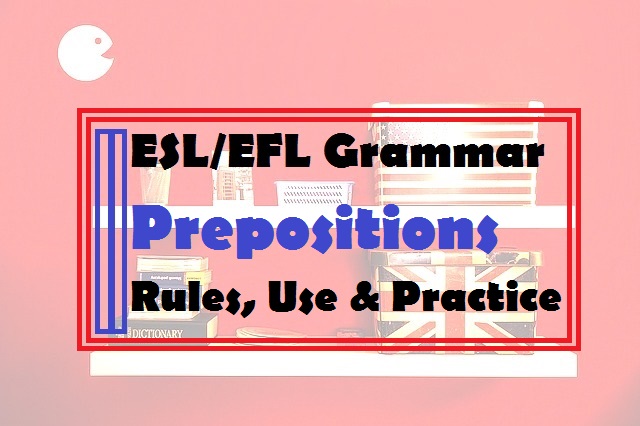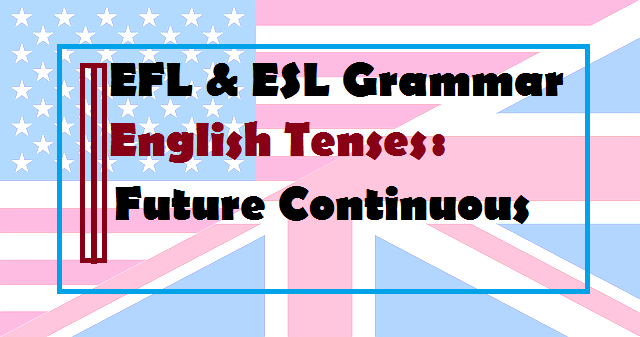The use of the conditional type THREE in English (EFL/ESL Grammar: rules, use and practice)
Conditional type three is used to describe an unreal and a hypothetical situation that didn’t happen in the past and its result. Sometimes, it can be used to express regret.
Conditional type three is made by using past perfect after “if” and then would have and the past participle in the second part of the sentence.
The form of condtitional type three:
| if + past perfect, … subject + would + have + past participl |
Forms of conditional three with the verb: “go”
| Affirmative |
| I would have gone if I had ……. You would have gone if you had.. She would have gone if she had … He would have gone if he had.. We would have gone if we had .. You would have gone if you had .. They would have gone if they had .. |
| Negative |
| I wouldn’t have gone if I had ……. You wouldn’t have gone if you had.. She wouldn’t have gone if she had … He wouldn’t have gone if he had.. We wouldn’t have gone if we had .. You wouldn’t have gone if you had .. They wouldn’t have gone if they had .. |
| Interrogative |
| Would I have gone if I had …….? You would have gone if you had..? Would she have gone if she had …? Would he have gone if he had..? Would we have gone if we had ..? Would you have gone if you had ..? Would they have gone if they had ..? |
Examples:
- If she had studied hard, she would have got her diploma.
- If I had had money, I would have given you some.
- If I hadn’t slept, I would have come to the party.
- She wouldn’t have been tired if she hadn’t played for hours.
- I wouldn’t have come late If had known the exact time.
- She would have taken a taxi if her car hadn’t been worked.
check other conditionals :
Take Quiz
Check your understanding here....








